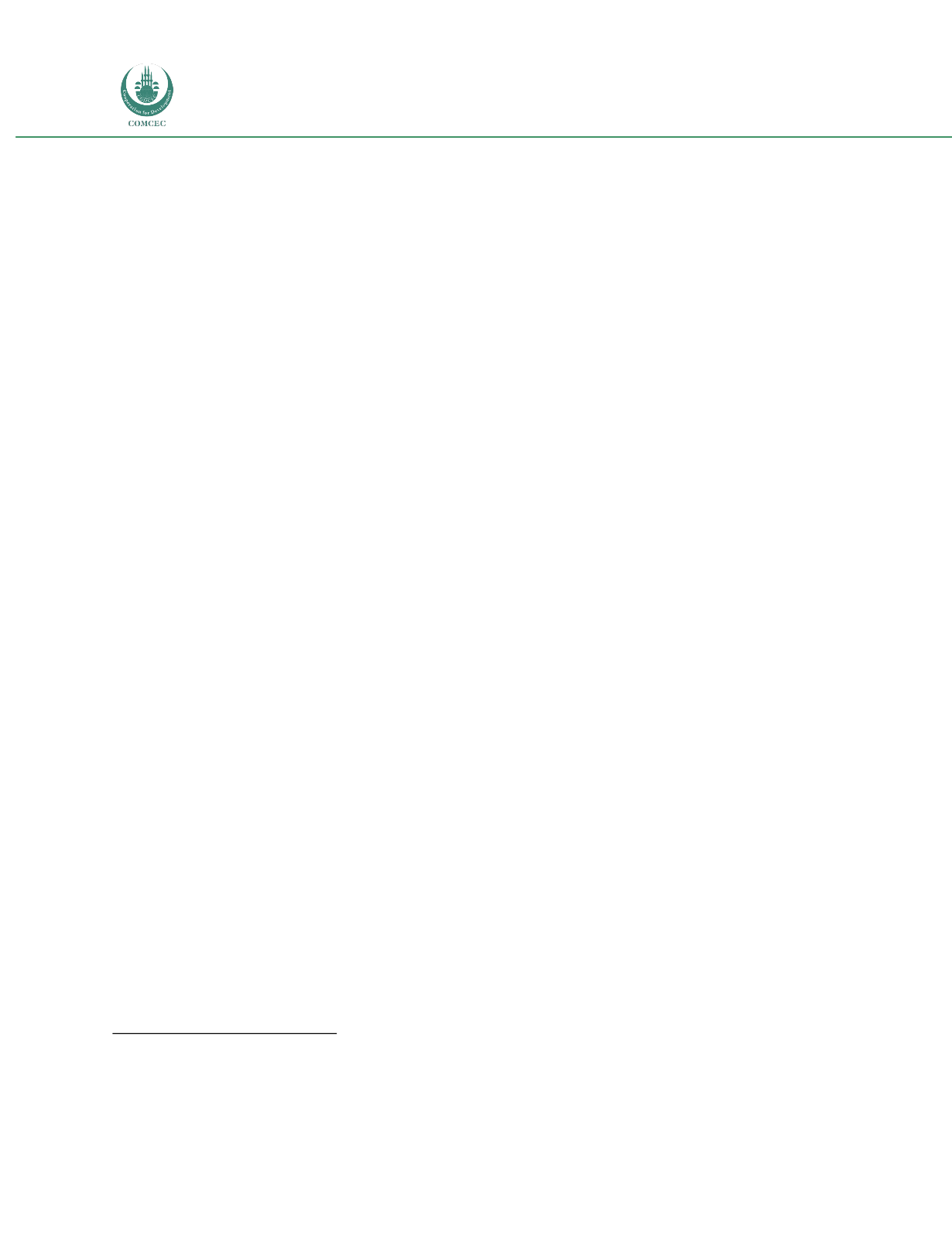

Strengthening the Compliance of the OIC Member States
to International Standards
86
b)
The Egyptian Conformity Certificate: a voluntary certificate issued by EOS to indicate conformity
of the production patch of any product to the relevant Egyptian standard after conducting the
required technical studies;
c)
The Egyptian Conformity Mark is approved by EOS indicating conformity of the product to the
relevant mandatory Egyptian standards for engineering products; and
d)
The Halal Mark is issued to food products and some cosmetic products.
In addition to standardization and quality assessment, EOS has a General Department for Industrial
Metrology, which is the official body in Egypt responsible for carrying out industrial metrology and
measurements for mechanical, electrical, and physical measurements. The department’s calibration
laboratories are regularly standardized at the National Institute for Standards (originally the National
Metrology Institute), established in 1962 to develop a metrology infrastructure in Egypt.
EGAC was established by presidential decree 312/1996 and is the sole national body for accreditation of
certification bodies (systems and personnel), of inspection bodies, and of laboratories (testing and
calibration). The council is headed by the Minister of Trade and Industry and its board is composed of
14 members that represent all stakeholders in other bodies and organizations. EGAC carries out
accreditation functions in line with European and International best practice.
7
The products conformity assessment infrastructure of the Egyptian industry is complex and fragmented
by type of market. Voluntary conformity assessment activities are carried out by EOS Quality Control
Department for goods produced inside Egypt. In the food sector, inspection bodies affiliated to
Ministries of Supply and Internal Trade, Ministry of Health and Population, and Ministry of Agriculture
and Land Reclamation carry out random inspection campaigns in the domestic market. Meanwhile, the
General Organization for Export and Import Control (GOEIC) is responsible for inspection of imports
and exports according to ministerial decree 770/2005 following Law 118/1975. Testing is also
fragmented by type of market and by sector. There are a total of 154 accredited State-owned and private
labs. While medical laboratories are entirely private and conform to EU regulations, most of the
laboratories in the other sectors are State-owned. These belong to EOS Quality Control Department, the
Egyptian Chemistry Administration, and the Industrial Control Authority for locally produced goods
(chemicals, construction, food, engineering, and textile products), and to GOEIC laboratories for exports
and imports. Concerning efficiency, problems related to long waiting lists and delivery times, needless
repetition of tests and unavailability of some tests
8
have been reported. Another problem is the lack of
7
Accreditation of testing and calibration practices is carried out according to ISO 17025, inspection according to ISO 17025, accreditation
of medical labs according to ISO 15189, and measurement according to ISO 17021.
8
In the marble sector, for example, slabs need to be sent to Spain for EU compliance tests.
















